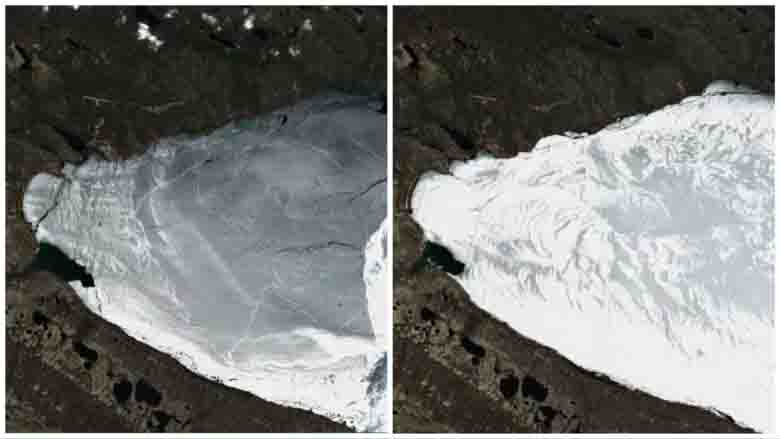Commonwealth _Canada _ The record-breaking heatwave that has engulfed the Northwest Territories (N.W.T.) and Nunavut in recent times is causing grave concerns among land users. The implications of this extreme heat on the region’s environment, wildlife, and traditional activities are truly alarming.
The Arctic regions are known for their harsh and cold climates, but the unprecedented heatwave has shattered temperature records, reaching alarming levels. The scorching temperatures pose a significant threat to the delicate ecosystems that exist in these areas. The permafrost, which acts as a foundation for the landscape, is thawing at an accelerated rate, leading to unstable ground conditions and the potential for land subsidence. This poses risks for infrastructure, such as buildings, roads, and pipelines, and can disrupt transportation routes and traditional hunting grounds.
For land users, such as Indigenous communities and subsistence hunters, the implications of the heatwave are especially concerning. Traditional activities that rely on the land and its resources, such as hunting, fishing, and gathering, are at risk due to the changing climate patterns. The availability and migration patterns of wildlife may be disrupted, impacting the ability of communities to sustain themselves and maintain their cultural practices.
The heatwave also increases the risk of wildfires, which can have devastating effects on the fragile Arctic ecosystems. These fires not only damage vegetation and wildlife habitats but also release large amounts of carbon dioxide into the atmosphere, contributing to further climate change and exacerbating the problem.
Furthermore, the health and well-being of local communities are at stake. Extreme heat can lead to heat-related illnesses and worsen existing health conditions. Access to clean water and food supplies may also be compromised, further impacting the overall resilience and livelihoods of communities in these remote regions.
In the face of this “scary” reality, it is imperative to address the underlying causes of climate change and take immediate action to reduce greenhouse gas emissions. Additionally, proactive measures must be taken to support affected communities, such as providing resources for adaptation, infrastructure improvements, and emergency response capabilities.
The record-breaking heatwave in the N.W.T. and Nunavut serves as a stark reminder of the urgent need to address climate change and its far-reaching implications. It underscores the importance of global collaboration, sustainable practices, and the preservation of these unique ecosystems and cultures for generations to come.











